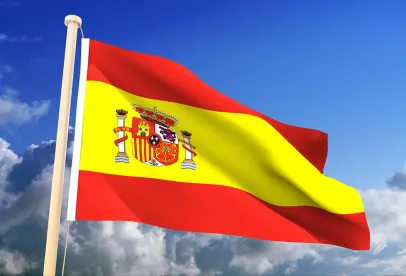The Spanish government has approved a draft bill to reform the three main industrial property laws: the Trademark Law, the Industrial Design Law and the Patent Law. The purpose of the changes are to order to solve various problems that industrial property right holders face today in Spain.
The reform contains interesting new provisions for the holders of industrial property rights and for those professionals whose practice is in the field of industrial property law.
While the reform is aimed at various areas of industrial law, the purpose of this blog is to explain the new developments which will affect the procedural aspects of industrial property litigation in Spain.
Trademark Law
With regard to the Trademark Law, the draft bill proposes that the judges competent in insolvency matters may order the Spanish Patent and Trademark Office not to expire those distinctive signs of the insolvent company that have not been renewed, until the end of the insolvency proceedings.
In relation to this point, the problem that currently exists in Spain is that purchasers of companies holding trademark rights sometimes find that the trademarks, which are one of the most valuable assets of the insolvent company, have expired due to lack of renewal during the insolvency proceedings. The reform remedies this situation and allows the insolvency judge to order the Trademark Office not to allow them to expire until the end of the insolvency proceedings, so that the acquirer can renew them at a later date.
The draft bill clarifies that the ordinary courts are competent to judge the damages that may be claimed because of the declaration of nullity or revocation of a trademark.
The current wording of the Law does not make it clear whether, in cases in which the Trademark Office declares a trademark invalid, it is competent to impose damages on the owners of the trademark declared invalid when they have acted in bad faith. The reform clarifies that those who have obtained the declaration of invalidity cannot claim that the Trademark Office, an administrative body, should determine damages, but that the ordinary courts should, where appropriate, impose compensation.
Industrial Design Law
As regards the Law on Designs, the reforms establish a prohibition on infringement actions by trademark owners against owners of subsequent designs and vice versa that could not be declared null and void.
This provision extends to the field of designs the regime established for trademarks known as the “right of intervention” which provides that if the owner of a design can not seek the invalidity of another registered design, it will not be able to bring an action for infringement.
Here it is important to raise the question of consent, because if consent exists, the invalidity of the design cannot be sought by another registered design owner.
In this regard, it is advisable that holders of prior design registrations who have entered into unsuccessful negotiations with holders of subsequent registrations terminate such negotiations by documenting their disagreement, e.g. through a unilateral written statement, in order to avoid the possibility of tacit consent being deemed to exist.
It also establishes the possibility of using other means of resolving design disputes, such as mediation.
Thus, it is very important to bear in mind that in order to make the mediation agreement enforceable in Spain, it must be notarised before a notary public so that it can be enforceable before the Patent and Trademark Office.
On the other hand, the scope of the matters that can be subject to arbitration is clarified, limiting the scope of what cannot be subject to arbitration only to what has to do with the granting procedure.
The obligation to provide the offender with a “authenticated “prior warning has been replaced. From the reform onwards, it will only be required that such a request be “sufficient”, which implies a lesser degree of formality.
Finally, a database of fairs and exhibitions is created in order to facilitate the right of exhibition priority. This database will be maintained by the Patent and Trademark Office.
This will enable those seeking to claim priority for their design displayed in an exhibition recognised in such databases to exercise that right more easily vis-à-vis other applicants for registration.
Patent Law
With regard to the Patent Law, the draft bill proposes that the Spanish Patent and Trademark Office, and not the commercial courts, should be competent to declare the nullity of supplementary protection certificates for medicines and phytosanitary products in cases where the patent is revoked by an administrative body.
This means that it will no longer be necessary to apply to the ordinary courts to obtain the invalidity of the certificate, an application to the Patent Office will suffice.
The non-expiry regime referred to above for trademarks is also extended to the renewal of patents due to the insolvency of the holder. This will allow the insolvency judge greater flexibility with regard to patents owned by the insolvent entity, which may be renewed by the acquirer of the insolvent entity even if the lapse period has elapsed.
The preliminary draft modifies the time limit for the defence and counterclaim, setting it at 60 calendar days, instead of the current two months, which facilitates the calculation of the time limit in the event of suspension of the same.
It is established that proceedings may be suspended due to lis pendens in patent invalidity proceedings when the Spanish or European Patent Office is also hearing a related opposition, limitation or revocation proceeding.
This amendment allows for the suspension of ongoing judicial proceedings, provided that the existence of a patent opposition procedure is proven.
Conclusión
The purpose of the reform is to provide greater legal certainty for holders of industrial property rights in Spain and directly affects the owners of such rights. Thus, for example, the reform contains very important benefits for those acquiring companies in crisis with regard to industrial property assets and updates the regulation of industrial designs in very important areas. It is therefore advisable to start adapting to this new future regulation.




 />i
/>i
